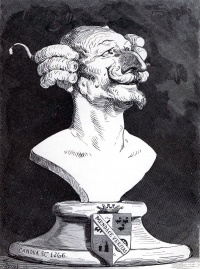Reliability
From The Art and Popular Culture Encyclopedia

|
Related e |
|
Featured: |
Reliability refers to the quality of being dependable or trustworthy.
Contents |
Unreliable narrator
In literature and film, an unreliable narrator (a term coined by Wayne C. Booth in his 1961 book The Rhetoric of Fiction) is a literary device in which the credibility of the narrator is seriously compromised. This unreliability can be due to psychological instability, a powerful bias, a lack of knowledge or even a deliberate attempt to deceive the reader or audience. Unreliable narrators are usually first-person narrators, but third-person narrators can also be unreliable.
Reliabilism
Reliabilism, a category of theories in the philosophical discipline of epistemology, has been advanced as a theory of knowledge, both of justification and of knowledge. Process reliabilism has been used as an argument against philosophical skepticism, such as the brain in a vat thought experiment.
Human reliability
Human reliability is related to the field of human factors engineering and ergonomics, and refers to the reliability of humans in fields such as manufacturing, transportation, the military, or medicine. Human performance can be affected by many factors such as age, state of mind, physical health, attitude, emotions, propensity for certain common mistakes, errors and cognitive biases, etc.
Etymology
From Old French relier (“fasten, attach, rally, oblige”), from Latin religo (“fasten, bind fast”), from re- + ligo.
See also

